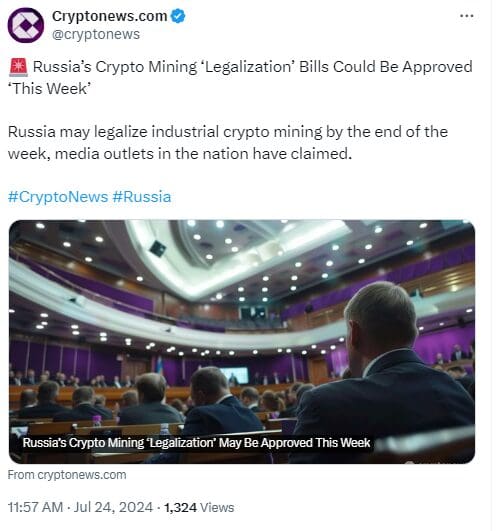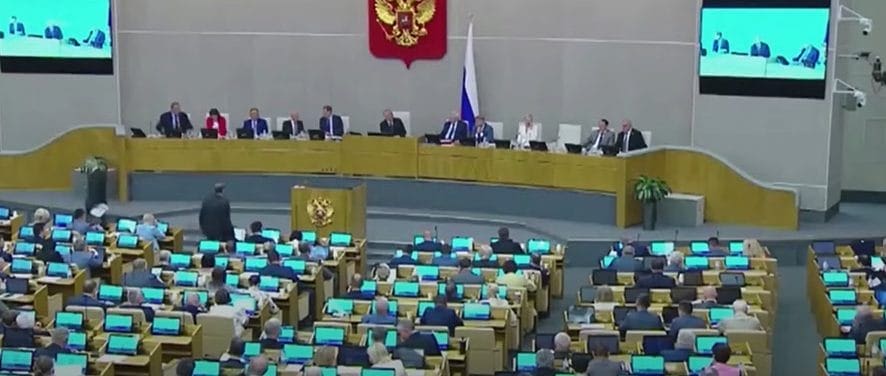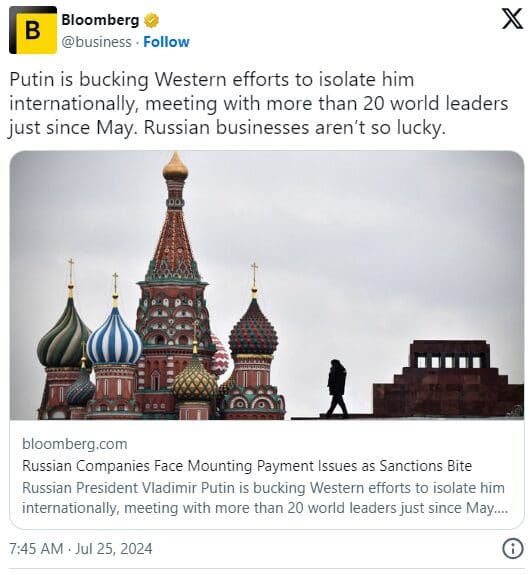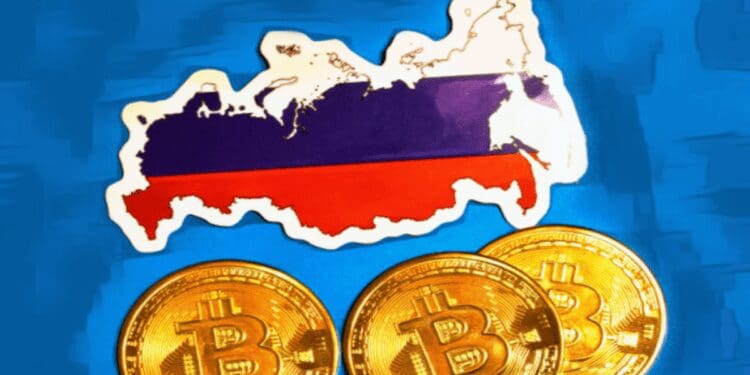In a significant policy shift, the Russian government is reportedly reconsidering its stance on crypto exchanges, potentially allowing their continued operation within the country. This comes as lawmakers, including Anton Gorelkin, Deputy Chairman of the State Duma’s Committee on Information Policy, express concerns about the implications of an outright ban.
Concerns Over Crypto Exchange Ban
Anton Gorelkin, Deputy Chairman of the State Duma’s Committee on Information Policy, revealed that many lawmakers have expressed serious concerns about a proposed ban on domestic crypto exchanges. Gorelkin, a co-author of a draft law on crypto mining, shared these insights on Telegram.

Ministries and Central Bank at Odds
For years, Russian ministries and the Central Bank have been in conflict over policies related to crypto mining and exchanges. This ongoing dispute has resulted in a prolonged regulatory deadlock, leaving the country’s thriving crypto mining industry and burgeoning crypto sector largely unregulated.
Presidential Intervention and Legislative Response
Earlier this month, President Vladimir Putin urged lawmakers to resolve the impasse and expedite legislation on crypto mining. In response, lawmakers have pledged to pass two crypto-related bills by the end of the current parliamentary session on August 5.

Unworkable Proposals
The Central Bank had proposed a ban on crypto exchanges, with exceptions for a few platforms intended for cross-border trade payments within a controlled sandbox environment. However, Gorelkin indicated that lawmakers found this proposal impractical. Consequently, the Committee on Financial Markets successfully removed the clause banning the organization of cryptocurrency circulation from the bill. Gorelkin stated:
“In its current form, the clause was causing some quite serious concerns among industry representatives.”
Ban on Crypto Ads
Despite this reversal, lawmakers plan to uphold a ban on the advertisement of crypto-related products and services in Russia. This mixed approach reflects the complexity of regulating the crypto sector while addressing both innovation and consumer protection.
Also Read: Russia’s Cryptocurrency Ban: Understanding the Controversy
Crypto Mining Regulations
For domestic crypto miners, the news is mixed. The State Duma’s Energy Committee has reportedly decided against capping the electricity usage for private mining operations. Proposals to completely ban individuals from mining crypto also failed to pass the committee stage.
Crypto for International Trade
Lawmakers are expected to pass a law allowing companies to use crypto for international trade settlements. The Central Bank aims to regulate these transactions through a government-approved sandbox, though details about the sandbox remain sparse. Gorelkin commented:
“I regularly receive inquiries from journalists who are interested in how businesses will use [crypto] to [trade] with [overseas firms]. I agree with my colleagues who believe that there is no need to publicize details about this. It could play into the hands of our opponents. There is a saying that ‘money loves silence.’ This applies completely to the use of crypto in cross-border transactions.”

Legislative Timeline
Both the crypto mining bill and the sandbox bill have passed their first readings in the Duma. Lawmakers face a tight deadline, with both bills requiring two more readings and additional committee discussions before the session ends. However, the Financial Markets Committee has confirmed that the sandbox bill is ready for its second vote. Lawmakers are expected to vote on the bill on July 30.
Regional Crypto Mining Bans
President Putin noted that crypto mining accounts for 1.5% of Russia’s total energy usage. He suggested that regional authorities should have the power to impose local bans on crypto mining to manage energy consumption effectively.
Also Read: India Implements Ban on Offshore Crypto Exchanges Amid Regulatory Concerns













Discussion about this post